2027 Porsche Cayenne EV: A New Era of Electric Luxury and Performance
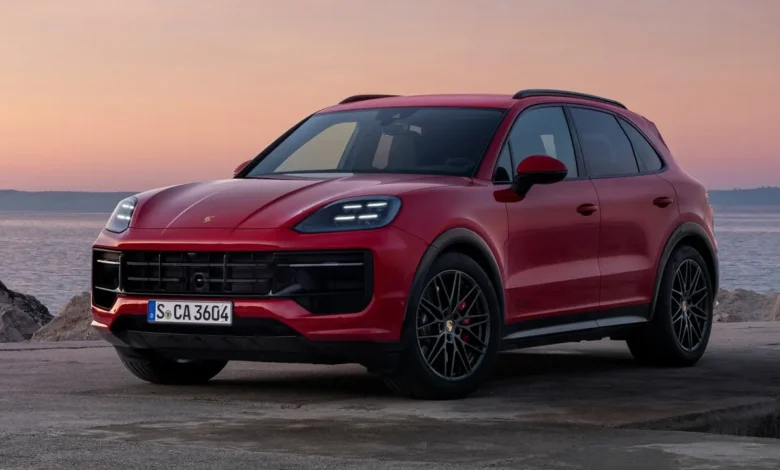
Porsche is no stranger to innovation. From the early days of the 911 to the game-changing Taycan, the German automaker has consistently pushed the limits of performance and design. Now, the luxury SUV market is about to witness another revolution with the arrival of the 2027 Porsche Cayenne EV—an all-electric version of the iconic Cayenne. Combining advanced battery technology, lightning-fast acceleration, and Porsche’s unmistakable driving DNA, the Cayenne EV is poised to become one of the most desirable electric SUVs on the planet.
Porsche’s Leap Into Luxury EV SUVs
Since its launch, the Cayenne has been a mainstay of Porsche’s portfolio, providing a balance of performance and usability that has increased the brand’s appeal beyond fans of sports cars. Now, with electrification sweeping the industry, Porsche is adapting. The 2027 Cayenne EV will sit on the company’s Premium Platform Electric (PPE), the same architecture underpinning the Macan EV and Audi Q6 e-tron. This platform ensures top-tier efficiency, faster charging, and improved weight distribution for a sportier drive.
With the Cayenne EV, Porsche isn’t just building an electric SUV—they’re redefining what a luxury EV should be.
Powertrain Performance: Electric Muscle Meets German Engineering
The Cayenne EV’s sleek exterior conceals a high-output dual-motor system that, in typical setups, should generate over 470 horsepower. Higher trims or performance editions could top 600 horsepower, delivering jaw-dropping acceleration from 0 to 100 km/h in under 4 seconds.
What sets the Cayenne EV apart is its 800-volt battery system, enabling ultra-fast charging and efficient power delivery. In real-world testing, it has already set records, notably during a stealth entry at the Shelsley Walsh Hill Climb, where it completed the 60-foot mark in just 1.94 seconds, hinting at Tesla-rivaling acceleration.
Battery Range and Charging Capabilities
The 2027 Cayenne EV is expected to feature a battery pack close to 100 kWh, allowing a range of up to 485 km (approx. 300 miles) under WLTP standards. Thanks to Porsche’s 800V architecture, the Cayenne EV supports DC fast charging up to 270 kW, which means a 10-80% charge can be completed in under 20 minutes. For overnight charging, an 11 kW AC charger will fill the battery in about 9 hours.
This fast-charging capability addresses one of the major pain points for electric vehicle owners—downtime. Whether you’re traveling across states or just commuting, the Cayenne EV is designed for maximum convenience.
Exterior and Aerodynamics
While the 2027 Porsche Cayenne EV will share some design language with its gasoline counterpart, expect modernized touches to enhance aerodynamics and reflect its electric identity. Flush door handles, a closed-off grille, and a lower drag coefficient of approximately 0.21 Cd will help extend range while delivering a clean, futuristic aesthetic.
Expect sleek LED light strips at the front and rear, larger wheels for better stance, and an overall silhouette that balances SUV capability with sports car flair.
Interior Technology and Cabin Luxury
The interior of the Cayenne EV is expected to blend cutting-edge tech with signature Porsche craftsmanship. You can anticipate:
- A wide digital instrument cluster with high-resolution displays
- A center-mounted infotainment screen powered by Porsche’s latest infotainment software
- Voice control, OTA updates, and customizable driving modes
- Optional rear entertainment and enhanced climate control systems
Sustainability is also part of the design ethos. Expect recycled and vegan interior materials to be offered alongside traditional leather upholstery, appealing to both eco-conscious and luxury-oriented buyers.
Safety and Driver Assistance
In the ever-evolving EV landscape, safety plays a crucial role. The Cayenne EV will include a comprehensive suite of ADAS (Advanced Driver-Assistance Systems) such as:
- Adaptive cruise control with traffic jam assist
- Lane-keeping and lane-change assist
- Automatic emergency braking
- Night vision assist
- 360-degree camera system with parking automation
These systems will not only ensure a safer driving experience but also elevate the SUV’s position as a true flagship in Porsche’s EV expansion.
Comparison with Current ICE Cayenne and Macan EV
To understand how far the Cayenne EV will push the envelope, a side-by-side comparison is useful:
| Feature | 2027 Cayenne EV | Cayenne Turbo E-Hybrid | Macan EV (2024) |
| Power Output | 470–600+ hp | 729 hp (combined) | 402–630 hp |
| Battery Capacity | ~100 kWh | 25.9 kWh (PHEV) | 100 kWh |
| Range (WLTP est.) | 485 km | 52 km electric (EV mode) | 500 km |
| 0–100 km/h Acceleration | <4 sec (top trim) | 3.6 sec | 3.3–5.2 sec |
| Charging Time (DC Fast) | <20 minutes (10–80%) | Not available | 21 minutes (10–80%) |
| Platform | PPE (EV-only) | MLB (ICE-based) | PPE |
| Starting Price (Est.) | $100,000+ | $146,000+ | $85,000+ |
Market Position and Competition
Porsche is aiming the Cayenne EV directly at high-performance electric SUVs like the Tesla Model X, BMW iX M60, and Audi Q8 e-tron. However, its blend of dynamic handling, precise engineering, and brand prestige gives it a unique position.
Pricing is expected to begin just over $100,000, positioning it between the Cayenne E-Hybrid and the future ultra-luxury K1 electric SUV that Porsche has in the works. For customers looking for a performance-oriented luxury EV SUV without sacrificing the Porsche feel, the Cayenne EV may become the new benchmark.
Sustainability and Porsche’s EV Roadmap
The Cayenne EV is more than just another electric SUV. It’s a crucial part of Porsche’s larger electrification strategy. By 2030, the brand aims to have more than 80% of its global sales be electric vehicles. With the Taycan already setting the pace and the Macan EV on the way, the Cayenne EV is the natural next step.
Additionally, Porsche’s investment in synthetic e-fuels ensures that legacy combustion models can still run clean, showing the company’s two-pronged approach to sustainability: leading in EV development while preserving its heritage.
Read: Lamborghini Temerario: A 907-HP Hybrid V8 Supercar That Heralds a New Era
What to Expect by 2027
When the Cayenne EV launches in 2027, it will be more than a test of Porsche’s engineering—it will be a signal to the automotive world that true performance, utility, and electrification can coexist. It will likely spawn additional variants, including a coupe-style model, and maybe even a GTS or Turbo trim.
With lightning-fast charging, top-tier luxury, and Porsche’s signature sportiness, the Cayenne EV is set to redefine the luxury electric SUV segment.
Frequently Asked Questions (FAQ)
Q1: When will the 2027 Porsche Cayenne EV be released?
The Cayenne EV is expected to debut in late 2026, with deliveries beginning in early 2027.
Q2: What is the expected range of the Porsche Cayenne EV?
Real-world estimates suggest a range of around 485 kilometers (about 300 miles) on a full charge.
Q3: How fast can the Cayenne EV charge?
With its 800V system, it can charge from 10% to 80% in under 20 minutes at a 270kW DC fast charger.
Q4: Will the Cayenne EV replace the gas-powered model?
No, Porsche will continue offering ICE versions of the Cayenne through 2030 alongside the EV model.
Q5: What platform is the Cayenne EV built on?
It uses the new Premium Platform Electric (PPE), shared with the Porsche Macan EV and Audi Q6 e-tron.
Q6: How much will the 2027 Cayenne EV cost?
Pricing is expected to start around $100,000, with higher-performance trims potentially reaching $150,000+.

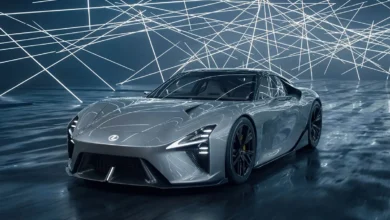
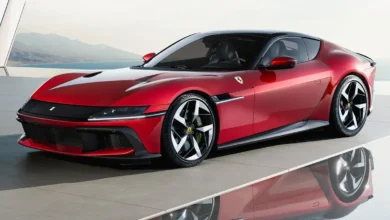
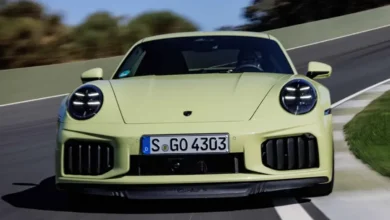
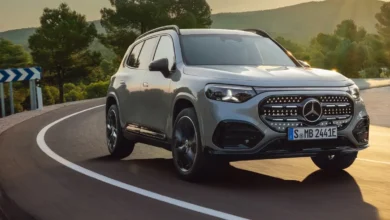
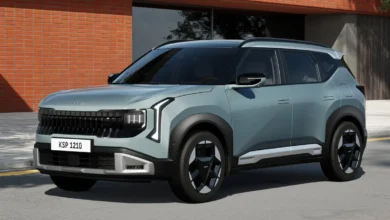
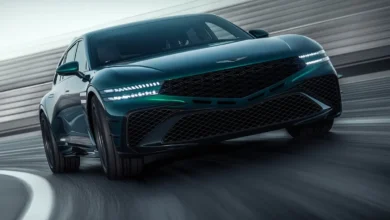
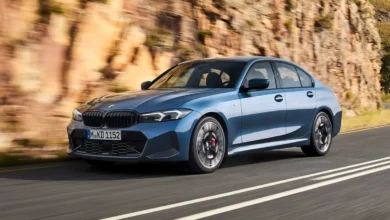
3 Comments